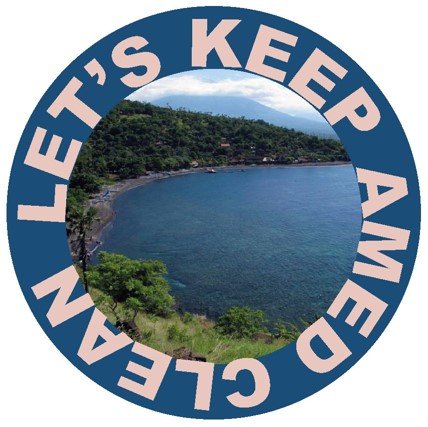By Lisa Owens Viani | Communications Manager
The biggest surprise for former CORAL Conservation Programs Director Rick MacPherson on his spring reef surveys off the north coast of Bali was that the nearshore reefs—which he expected to be teeming with life, “like the ‘Times Square’ of the Coral Triangle”—were instead very quiet. “Gone were the colorful reef fish grazing on algae on the coral rock, along with the usual underwater chorus of snaps and pops from their nibbling,” he recalls. The magnificent predator fish were gone too: no sharks, jack, snapper, or grouper.
Where he did find lots of fish, however, was displayed in front of the beach-long strip of restaurants in the village of Jimbaran just outside the Bali capital of Denpasar. There, hundreds of tourists were disembarking from tour buses and engaging in a feeding frenzy, selecting their favorite reef fish for dinner. Lobster and crab were on display as well. All of these fish and crustaceans play important ecological roles in keeping reefs healthy, so the fact that they were onshore, rather than on the reef, was disturbing. “The sheer volume surprised me,” says Rick. “I saw more grouper for sale on the beach than in one week of reef surveys.”
In nearby Amed, Reef Check Indonesia has worked for several years to discourage the practice of unsustainable reef fishing, while CORAL has complemented their efforts by building community support for a voluntary user fee system that would bring alternative income into the community through dive tourism. We have also been encouraging the community to take more ownership of their reef. In some other communities along the northern coast, locals have asserted their own access rights, establishing a “turf.” When poachers come in, they are chased out. In contrast to what he saw at Jimbaran, says Rick, those local “rights-based” fishery areas had visibly more abundant and intact fish communities. “It’s still obviously depleted, but you can see the recovery taking place.”
CORAL hopes that by building support from within communities like Amed, we can inspire replication of this kind of rights-based approach. At the same time, we plan to work with legislators and policymakers at the regency (local) or federal level to reinforce this type of ownership through legal decrees. Such a solution speaks to what CORAL is all about: bringing people—tourism operators, fishermen, NGO partners, government officials—together to reestablish healthy reefs.
By Lisa Owens Viani | Communications Manager
Support this important cause by creating a personalized fundraising page.
Start a Fundraiser